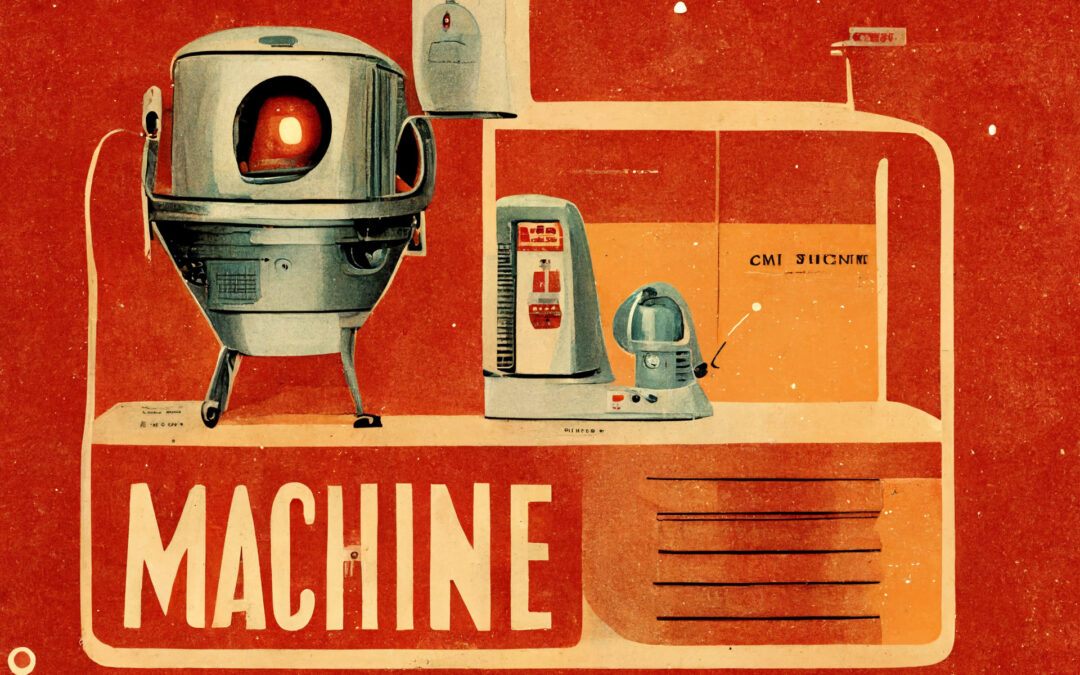‘…when I write about being a cyborg, I challenge reality’
—The Cyborg Jillian Weise, ‘How a Cyborg Challenges Reality’ (The New York Times)
‘Every sexuality has a knowledge and technology and every new way/to move beasts from one crate to another produces a metaphor’
—Holly Pester, ‘Are You Writing About Love?’
‘A poem is a small (or large) machine made of words.’
—William Carlos Williams, ‘The Wedge’
You’re probably reading this on a machine. But what does that mean? Is a machine a single discrete object, or would it be truer to describe it, like the body, as a composite of many variously sized machines?
Perhaps you’ve printed out this page. In that case you’ve made use of a machine which, in an earlier, bulkier form, could lay claim to being one of the most potent machines ever developed (up there with the washing machine and the machine gun), in terms of the shift it instigated between humans and language (see Walter J. Ong on the technologizing of the word and Benedict Anderson on print capitalism).
The poem was famously described by William Carlos Williams as ‘a small (or large) machine made of words.’ Was the poem always a machine? Or did that transformation occur when the printed page – whose contents were designed for silent consumption – supplanted the oral traditions of incantation and song?
The theme for our co-edited issue of The Rialto is MACHINE, whatever you take that to mean. Your poem could be nothing more or less than a self-conscious machine. It could make use of machines like Jay Gao’s experiments with Lillian-Yvonne Bertram’s algorithmic poetry scrambling tool. It could feature machines real or imagined, like Brenda Shaughnessy’s time machine. Jayne Cortez described the blues as ‘instruments imitating the human voice and the human voice imitating machines.’ Maybe you take a similar approach. Maybe machines are a part of your identity. You might identify as a cyborg (see The Cyborg Jillian Weise’s NYT article on the subject).
In its relationship to the machine of capital, your poem will always be fixed. But perhaps it’s possible to make language aware of that, to charge it with an energy that might evade the determined death drive of money. This issue of a poetry magazine won’t overthrow the great machine of the capitalist state, but it might just question its supremacy for the length of time it takes to hold a poem in the machine of your body. So send us your poems!
— Ella Frears & Will Harris
Rialto 100 Submittable is here.
Image: Nick Stone. Machine. A machine-dreaming AI image created using Midjourney.
